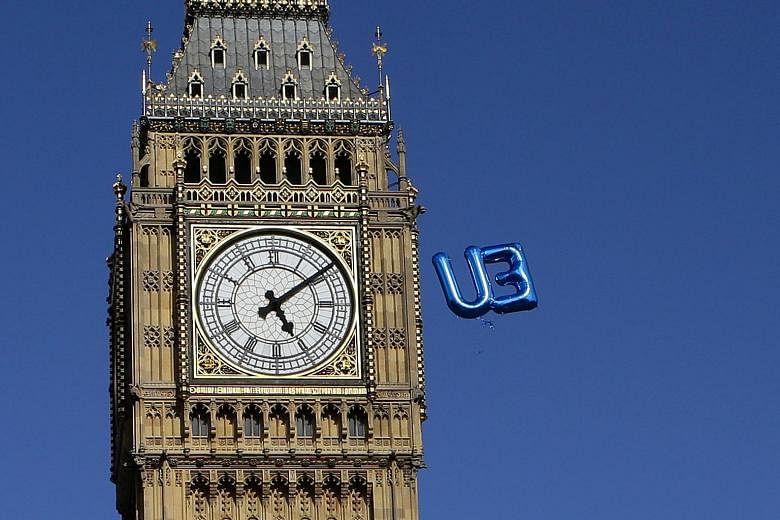BERLIN • Britain may be in danger of becoming an inward-looking nation of diminished influence after its vote to leave the European Union.
But one country that could find its voice in Europe dramatically amplified is Germany.
Under the stewardship of Chancellor Angela Merkel, Europe's largest economy has already ridden to the zenith of its post-World War II power. But the departure of the EU's second-largest economy - Britain - could thrust an even bigger burden of leadership upon Germany.
Some Europeans remain leery of German power - the very energy the EU was designed to harness to prevent Berlin's re-emergence as the continent's dominant force.
But almost as many now worry that Germany will shrink from its leadership role, leaving a rudderless Europe. Yet, no nation is more torn over its rise than Germany itself.
Ms Jennifer Werthwein, 22, an economics and philosophy major at the University of Mannheim, for instance, recently launched a social media campaign with 500 others from the Green Party.
Their mission: to make Germans stop displaying the national flag during the European football championships. Their campaign against symbols of German power sparked a national debate, and other student organisations have rallied to their cause.
In the wake of Britain's exit, Ms Werthwein said Germany should not take pole position on the continent again, given the horrors of World War II. "For me, our working through of the nationalism of the Nazi era can never be over," she said.
Others are asking whether Germany will manage to turn the tide in Europe against more protectionist and inward-focused nations such as France and Italy, and how it plans to do so.
Dubbed the "sick man of Europe" in the early 2000s for its post-unification financial woes, Germany's economy is now a global model. And through Dr Merkel, it is exerting a kind of postmodern leadership - leading by example and through consensus.
Dr Merkel's pursuit of a patient and orderly British exit, even as some of her peers in Europe display grandstanding impatience, suggests the methodical style she has become known for. Dr Merkel is being firm with Britain. But she is also avoiding the temptation to humiliate it because she believes that is not what is best for Europe. That, some would argue, is leadership.
Perhaps, Germany also seems stronger as its neighbours have become weaker. France is mired in economic woes and a war on terrorism. Spain and Italy face massive unemployment and political instability. Embracing nationalism, Poland and Hungary have turned inwards. Pretty much everything that could go wrong has gone wrong in Greece.
Still, Dr Merkel, critics say, mishandled the region's refugee crisis - encouraging a stampede of refugees with her welcoming stance before abruptly closing the door via a much-maligned deal with Turkey.
But without Dr Merkel's consensus-building, the Germans and others say, perhaps things in Europe would now be much worse.
No one is predicting a sharp turn in Germany towards military strength. The post-World War II adherence to pacifism remains the driving force of German foreign policy. However, Germany may pull up more of Britain's slack - in Europe and beyond.
WASHINGTON POST

